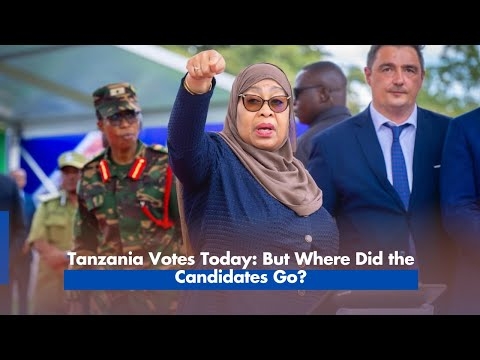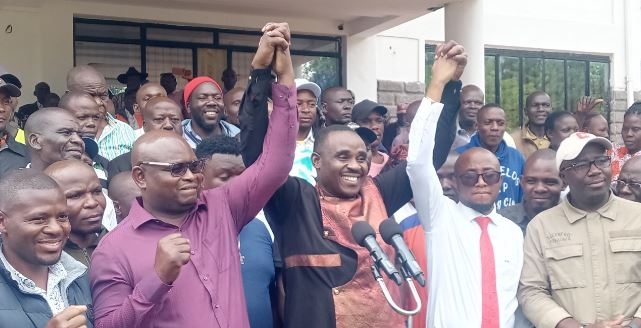This week has witnessed the formal exit of all partners of the erstwhile National Super Alliance.
Nasa was the political conglomerate formed ahead of the 2017 general election by Musalia Mudavadi of ANC, Kalonzo Musyoka of Wiper, Moses Wetang'ula of Ford Kenya, Raila Odinga of ODM and CCM's Isaac Rutto.
The aim of the alliance was to nasa (capture the Jubilee government by bundling it out of power.
However, this didn’t happen, though a petition mooted by Ekuru Aukot and supported by Nasa nullified the presidential election.
This precipitated an electoral and legitimacy crisis that necessitated the March 9, 2018, handshake between President Uhuru Kenyatta and Raila Odinga, the two protagonists in the disputed election.
To begin with, a controversial swearing-in of Raila as the 'people's president' tested the will of Nasa to the extent that some principals never showed up at Uhuru Park.
The whole scheme, according to them, was that Raila tricked them into waiting for his directions through a ‘Nigerian phone number', only for them to see him being sworn in at Uhuru Park.
The counter argument from ODM is that the other principals cowered to show up, fearing arrest on treason charges. This was aimed at delegitimising them as heroes of the struggle, thus perpetuating the notion that it's only Raila who had the guts to fight for their clamour for electoral justice.
What followed were bitter exchanges that saw Wetang'ula lose his Senate Leader of Minority position to ODM Senator James Orengo. He had to be rewarded for his stellar performance at the Supreme Court, which nullified the presidential race.
In the course of the 12th Parliament, the leadership wrangles ended up affecting Chris Wamalwa versus Simiyu Eseli in Ford Kenya and Cleophas Malala of ANC versus Steward Madzayo of ODM.
In the meantime, the other Nasa principals found their way to Jubilee and pro-establishment forces under the patronage of President Uhuru Kenyatta.
Their aim ostensibly was to not only neutralise the opposition but also to ensure a stable political environment for the government agenda to be executed.
However, every political motive has both its intended and unintended consequences. The handshake eventually led to the implosion of the Jubilee Party, an outfit with a national outlook, having an elected official in 41 out of the 47 counties.
Deputy President William Ruto and his allies found themselves displaces from the inner sanctums of the very government they campaigned for and achieved victory.
First and foremost, Nasa effectively died on or around March 9, 2018, six months after Parliament was sworn in. However, the parliamentary leadership kept a working arrangement in both Houses.
Firstly, the motive was to retain their positions and their perks, and to hold a bargaining chip with the core of the Jubilee establishment to shore up the numbers on the floor of Parliament.
Secondly, Nasa died because Raila ran away from being held responsible for his promise of running for only one term, thus shelving their presidential ambitions in his favour.
This had also happened under Cord alliance, whose summit was comprised of the same allies — Kalonzo, Wetang'ula and Raila.
Mudavadi had also deputised Raila in the 2007 race.
Not keen on deputising Raila for a record third time, Kalonzo cobbled together the One Kenya Alliance that brought together his fellow Nasa principals, with the addition of Kanu chairman Gideon Moi.
The Kanu leader recently said Oka needs Raila, if it is to succeed. Raila has also urged his former allies to unite or perish under the onslaught of DP William Ruto, the current frontrunner in the presidential race.
Uhuru had been billed as the glue that would unite Nasa but this has clearly not worked as planned. Instead, Uhuru and Raila prefer an arrangement whereby all other pliant presidential hopefuls join a political arrangement through either of them.
But this has faced stiff opposition, due to the baggage from previous marriages and a ‘trust deficit’, Wetang'ula said.
The pro-establishment forces are thus cobbling together an anti-Ruto alliance, ostensibly to secure their interests by either holding onto power, or having control over who becomes president.
DR Congo's Joseph Kabila did the same with Felix Tshisekedi to the detriment of Martin Madidi Fayulu. But they have since fallen out, failing to guarantee Kabila the power he sought to exercise by proxy.
The same applies to Botswana’s former President Ian Khama and incumbent Mokgweetsi Masisi, his erstwhile protégé.
The big question remains, who will be the presidential candidate under Oka. And save for the Kanu leader wanting to deputise the ODM leader?
If that happens, will that ticket not be the quintessential contest between hustlers versus dynasties? Further, without a power sharing framework similar to BBI, what will there be to hold on to for other presidential hopefuls? Is Oka likely to disintegrate sooner or later?
Time will tell.
(Edited by V. Graham)












